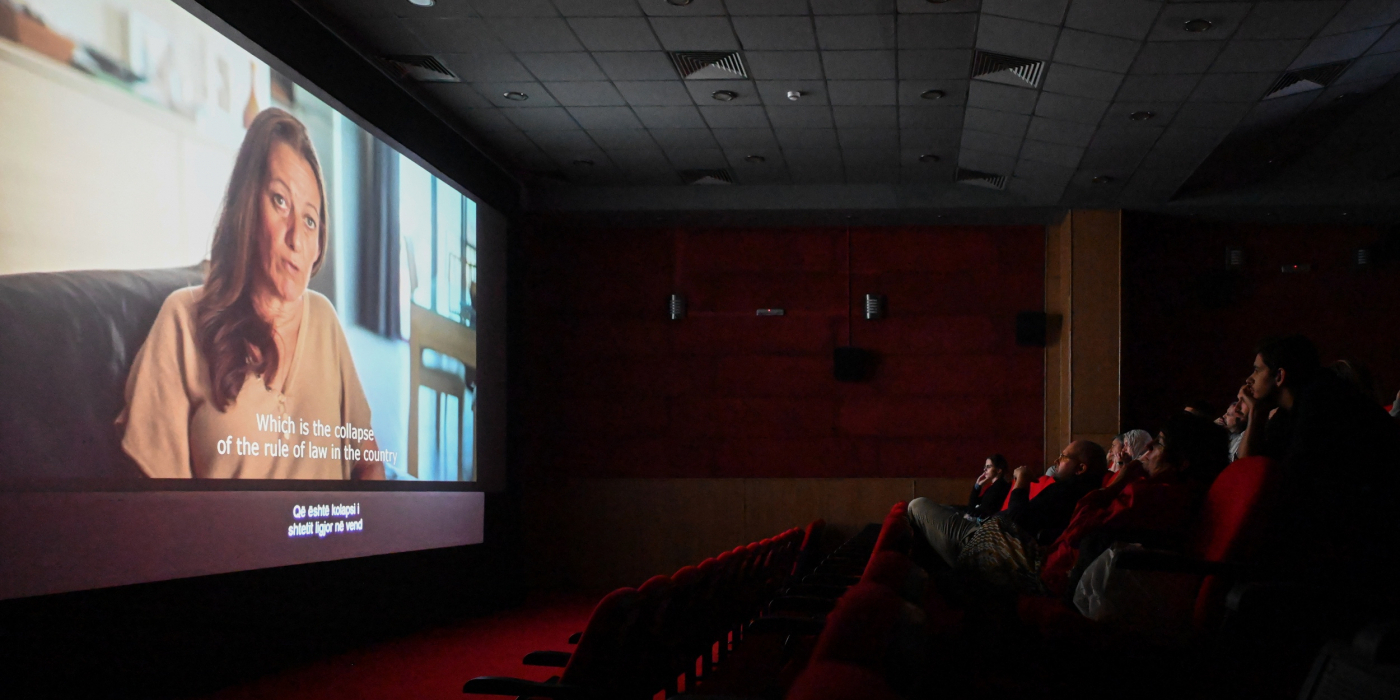09/08/2023
"No people are born corrupt, except for those with psychopathic disorders," - as said in Fredrik Gertten's film. Breaking Social was screened at DokuKino many people came along to watch.
The film explores the ways we are corrupted by billionaire rulers as well as the dangers of journalism. There is huge amounts of evidence that journalists are often killed whenever an article exposing corruption is published in the media. The attempt to "cut off" journalists' tongues is to feed them in the same way you stole from them. If the journalist does not fall prey to your lies, you are professionally dead. It’s like the trash that comes to the surface after floods. The indisputable way to rise to the pedestal for a short time is to steal them. Theft starts from the vote, "One Person, One Vote" is no longer on the horizon nor in existence, but "One Dollar, One Vote".
Gertten's film is set in Malta, Chile, and the USA. After the film was over, the director did a Q+A with the audience and discussed the behind-the-scenes, extra details, the initial idea, and how he selected the locations. He chose Malta because of the murder of journalist Daphne Caruana Galizia. He chose Chile because, during the uprising, he was in a hotel room while there was tear gas in the streets, and the USA, because of the journalist Sarah Chayes, who reported on corruption there.
During the discussion, Gertten also mentioned Kosovo as a country relevant to the theme of the film.
"Around the world, there are many companies that deal with election campaigns and no one deals with them. We point the finger at Kosovo as a very corrupt society. They are very corrupt but I think it's a message to the people here, it's not all about them, but it’s about the system".
In addition to these topics, the film also showed resistance by the citizens. For example, when there was an increase in subway ticket prices, many citizens flooded the streets in protest.
"First of all, I want to say that having hope, believing that you can change things, is an act of resistance in itself. And I think that the very first step of this documentary is an act of resistance, and the DokuFest festival itself is an act of resistance on a global scale. We have to see people how to do things. In the film I was making with a Brazilian cinematographer, we were talking about the presentation of people, to reveal them as they are, to see individuals and not the masses. People who go from doing nothing to doing something, that's very important. Sometimes we tend to think that we are losing everything, but we don't see the other side, that something good is happening. It's the same with the feminist movement in Latin America which is very inspiring. Or for example, the women demonstrating in Iran. These movements are extremely inspiring," he added.
This film confronts us with two very contradictory situations: on one side there are the governments, the corrupted people in power who corrupt the masses and on the other side there are the indignant citizens who revolt from strain and pressure. Citizen revolts are often a huge obstacle for corrupt governments.
By: Valona Hasani
Photo: Tughan Anit



